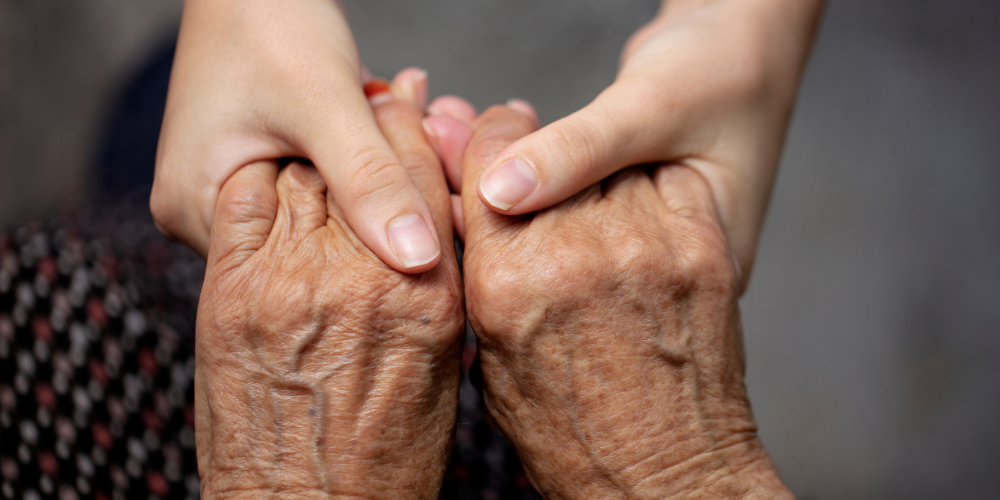You Matter Because You Are You: Why Global Health Equity Demands Solidarity
6 November 2025

Last Saturday, I had the privilege of speaking at the Palliative Care Works conference – a gathering of very special people who remind me, time and again, why compassion remains one of the most transformative forces in global health.
I chose to title my talk “You Matter Because You Are You.” Cicely Saunders’ words have followed me for years, and I return to them whenever I feel the world growing colder. They remind me that the foundation of palliative care – and indeed of all good healthcare – lies in a simple truth: that every person, no matter their circumstance, deserves to be seen, heard, and cared for with dignity.
That philosophy has shaped the global palliative care movement, and it has deeply shaped me.
Both of my grandparents received hospice care – one at St Christopher’s, the other at St John’s Bedfordshire. Years later, I found myself working at Sue Ryder, helping to advance palliative care across Eastern Europe. Those experiences marked me. They taught me that the measure of a society is found not in how it treats the powerful or the productive, but in how it tends to the frail, the elderly, and the dying.
Palliative care, I said at the conference, is a litmus test for health equity. It reaches the people health systems most often forget.
Partnerships That Build Dignity
At Global Health Partnerships, we’ve had the honour of walking alongside incredible colleagues across Africa who are advancing that same vision — step by step, partnership by partnership.
Over the past 10 years, we supported projects in Kenya, Rwanda, Uganda and Zambia that helped integrate palliative care into national health systems. Within three years, every participating hospital was offering integrated services, and the number of patients receiving palliative care tripled.
In Rwanda, over 170 nurses and 200 community health workers were trained, expanding access to oral morphine sixfold; a simple but profound act of compassion that transformed pain management for thousands. In Uganda, a focus on nurse leadership empowered over 150 professionals to bring palliative care into their wards. In Kenya, with the Worldwide Hospice Palliative Care Alliance and St Christopher’s, we helped introduce the “Hi-Five” model – five health workers training five more, each supporting five patients or families. Compassion, multiplied exponentially.
Each of these projects tells a story of partnership rooted in African leadership and shared purpose. They remind me that solidarity is not about charity. It’s about mutual respect, trust, and a shared belief that every person deserves dignity, comfort, and care.
A World in Retreat
But it’s impossible to talk about solidarity today without a sense of unease.
We are living through a moment of retrenchment. The UK has stepped back from its 0.7% aid commitment. Multilateralism is in retreat. The US is withdrawing funding that has saved millions of lives. And as a recent Lancet study shows, these cuts are not abstract. They will lead to millions of additional deaths between now and 2030, from HIV, tuberculosis, maternal complications, and preventable child illness.
At the same time, public empathy seems to be waning. According to the Charities Aid Foundation, the UK has fallen out of the top 20 most generous countries in the world. Two-fifths of people here no longer think of us as a generous nation.
This collapse of solidarity – global and local – is, for me, one of the most distressing features of our age.
Rebuilding Solidarity
So what do we do?
At Global Health Partnerships, we are trying to rebuild solidarity from the ground up, by empowering health workers as advocates, by showing the mutual benefits of partnership, and by reminding our colleagues in the NHS that global health is not a distant concern, but an expression of our shared humanity.
I’m often struck by how many NHS staff – over three quarters, according to our recent research- want to engage in global health work. That gives me hope.
And yet, even within the hospice community, we sometimes struggle to extend solidarity beyond our walls. I said on Saturday that I’ve always been surprised by how few hospices in the UK see themselves as part of a global movement. Cicely Saunders was an internationalist at heart. She saw the hospice as a universal idea, not bounded by geography, but grounded in the shared experience of care and loss.
From Compassion to Action
As Rob Yates of LSE often reminds us, if we want to change the world, we have to get political. Compassion alone isn’t enough; it needs structure, voice, and courage behind it.
I spoke to the delegates at Palliative Care Works from a place of love – for this movement, for the people who sustain it, and for the vision it represents. Because when palliative care reaches those who are unseen, it shows us what health equity truly looks like. And when partnerships bridge borders, they remind us that solidarity is not an act of charity. It’s an act of justice.
In an age that feels increasingly fragmented, perhaps the most radical message we can carry is still the simplest:
You matter because you are you.


0 Comments
Leave a comment
Your email address will not be published.